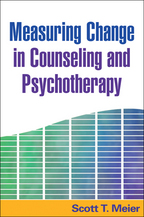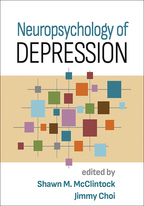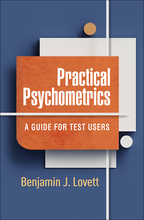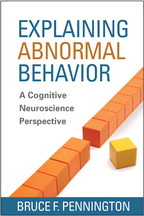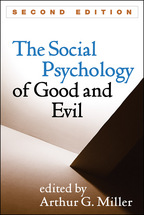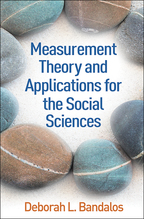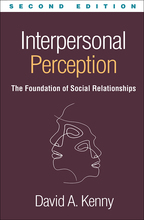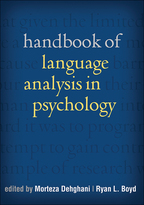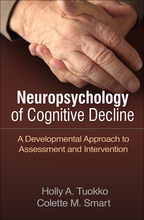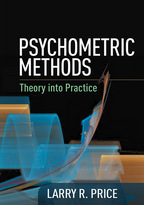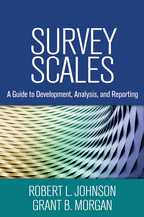Measuring Change in Counseling and Psychotherapy
Scott T. Meier
Hardcovere-bookprint + e-book
Hardcover
orderJuly 30, 2008
ISBN 9781593857202
Price: $64.00 303 Pages
Size: 6" x 9"
“This text should have a prominent place in professional psychology training programs. It offers an important and needed perspective on measurement for those preparing for careers in counseling and psychotherapy, and a helpful corrective to the practice of relying on trait measures for the evaluation of clinical change. Meier has done a fine job of tying measurement to practice issues, showing how outcome data can be used for clinical feedback and to inform clinical decision making. He clearly distinguishes how a test that is valid for measuring traits may not be valid for measuring clinical change, and vice versa. At a time when accountability is a driving force in the profession, the measurement and assessment perspectives provided by this book couldn’t be more opportune. This book would be most pertinent to doctoral and master's students in counseling psychology and would make an excellent addition to an assessment sequence—in particular, as a companion text in a personality/psychodiagnostic assessment course.”

—James W. Lichtenberg, PhD, Professor of Counseling Psychology and Associate Dean, School of Education, University of Kansas
“The strength of this book is that it offers comprehensive and sophisticated coverage of issues related to psychological testing, with a special focus on issues related to counseling and psychotherapy, which makes it unique and valuable. The author does a very good job of explaining terms and concepts and takes the reader deep into the complex and sophisticated world of psychological testing. I would highly recommend it to colleagues interested in psychotherapy research and empirical evaluations of psychotherapy services.”

—John Suler, PhD, Department of Psychology, Rider University
“A cutting-edge text that highlights the theoretical, methodological, and practical differences between traditional psychological measurement and the measurement of change in counseling/psychotherapy. It is very timely given the current pressures for accountability.”

—David A. Vermeersch, PhD, Department of Psychology, Loma Linda University
“The approach makes a great deal of sense. It covers important conceptual issues as well as practical matters. When students complete the assignments they will be prepared to go through the same steps in either selecting an outcome measure or in organizing an assessment strategy as well as critically appraising existing practices and their limitations. I would recommend the book to a colleague who wants students to have a good primer for assessing treatment effects.”

—Michael J. Lambert, PhD, Department of Psychology, Brigham Young University
—James W. Lichtenberg, PhD, Professor of Counseling Psychology and Associate Dean, School of Education, University of Kansas
“The strength of this book is that it offers comprehensive and sophisticated coverage of issues related to psychological testing, with a special focus on issues related to counseling and psychotherapy, which makes it unique and valuable. The author does a very good job of explaining terms and concepts and takes the reader deep into the complex and sophisticated world of psychological testing. I would highly recommend it to colleagues interested in psychotherapy research and empirical evaluations of psychotherapy services.”
—John Suler, PhD, Department of Psychology, Rider University
“A cutting-edge text that highlights the theoretical, methodological, and practical differences between traditional psychological measurement and the measurement of change in counseling/psychotherapy. It is very timely given the current pressures for accountability.”
—David A. Vermeersch, PhD, Department of Psychology, Loma Linda University
“The approach makes a great deal of sense. It covers important conceptual issues as well as practical matters. When students complete the assignments they will be prepared to go through the same steps in either selecting an outcome measure or in organizing an assessment strategy as well as critically appraising existing practices and their limitations. I would recommend the book to a colleague who wants students to have a good primer for assessing treatment effects.”
—Michael J. Lambert, PhD, Department of Psychology, Brigham Young University

